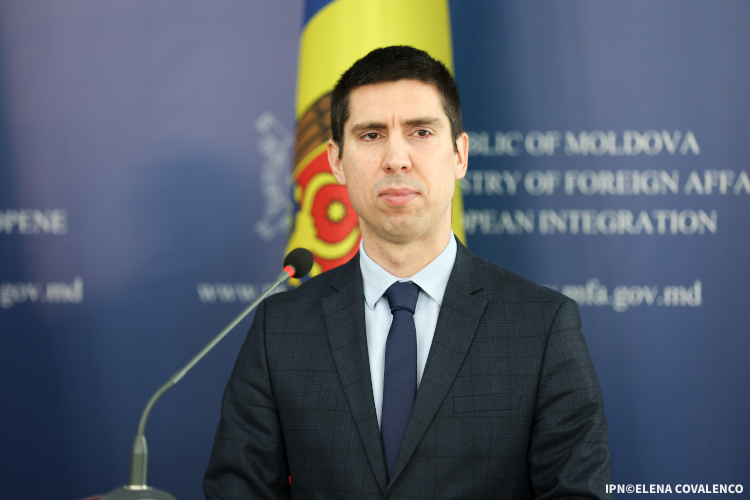An eventual expulsion of the Russian ambassador Oleg Ozerov from the Republic of Moldova would have generated the risk of economic sanctions from Russia, said Minister of Foreign Affairs Mihai Popșoi.
At the end of March, the Ministry of Foreign Affairs decided to expel three employees of the Embassy of the Russian Federation in Chisinau, following the involvement of the diplomatic mission in the escape of MP Alexandr Nesterovschi to the Transnistrian region.
The head of the Moldovan diplomatic service described the expulsion of the three Russian diplomats as an action "proportionate" to the seriousness of the Russian Embassy's involvement in the illegal transportation of Nesterovschi to the Transnistrian region, before the passing of the court's decision by which he was sentenced to 12 years in jail.
"It is a defiant action, an action that has nothing in common with the Vienna Convention, based on which they are in the Republic of Moldova, and those perpetrators who orchestrated these illegal actions were declared persona non grata," Mihai Popșoi said in the program "Secrets of Power" on Jurnal TV.
He also explained the reasons why the Moldovan authorities did not decide to expel the Russian ambassador Oleg Ozerov.
"It would have constituted an escalation, and its repercussions are difficult to estimate. We may see not a symmetrical, but an asymmetrical response from the Russian Federation, in the economic field, as regards our diaspora or even worse. That is why we must be careful," said the minister.
Mihai Popșoi also said that at Moldova’s Embassy in Moscow, there are currently only four diplomats left, and the number of Russian diplomats accredited in Chisinau is not much higher.
"At the Embassy of the Republic of Moldova in Moscow, there are four diplomats left and in Chisinau there are not many more Russian diplomats. Auxiliary staff can be employed from the country of residence. It is a natural practice, but these cannot fulfill diplomatic duties,” stated Mihai Popșoi.

